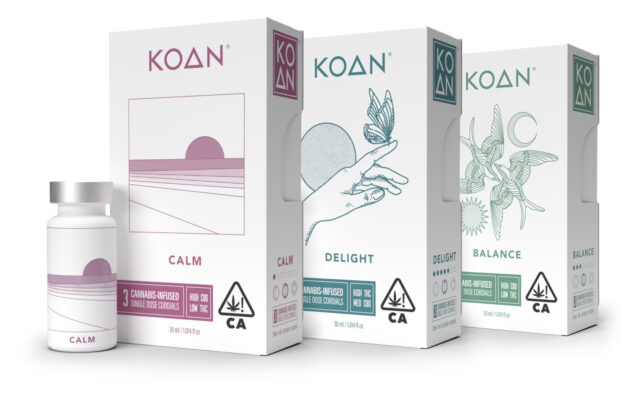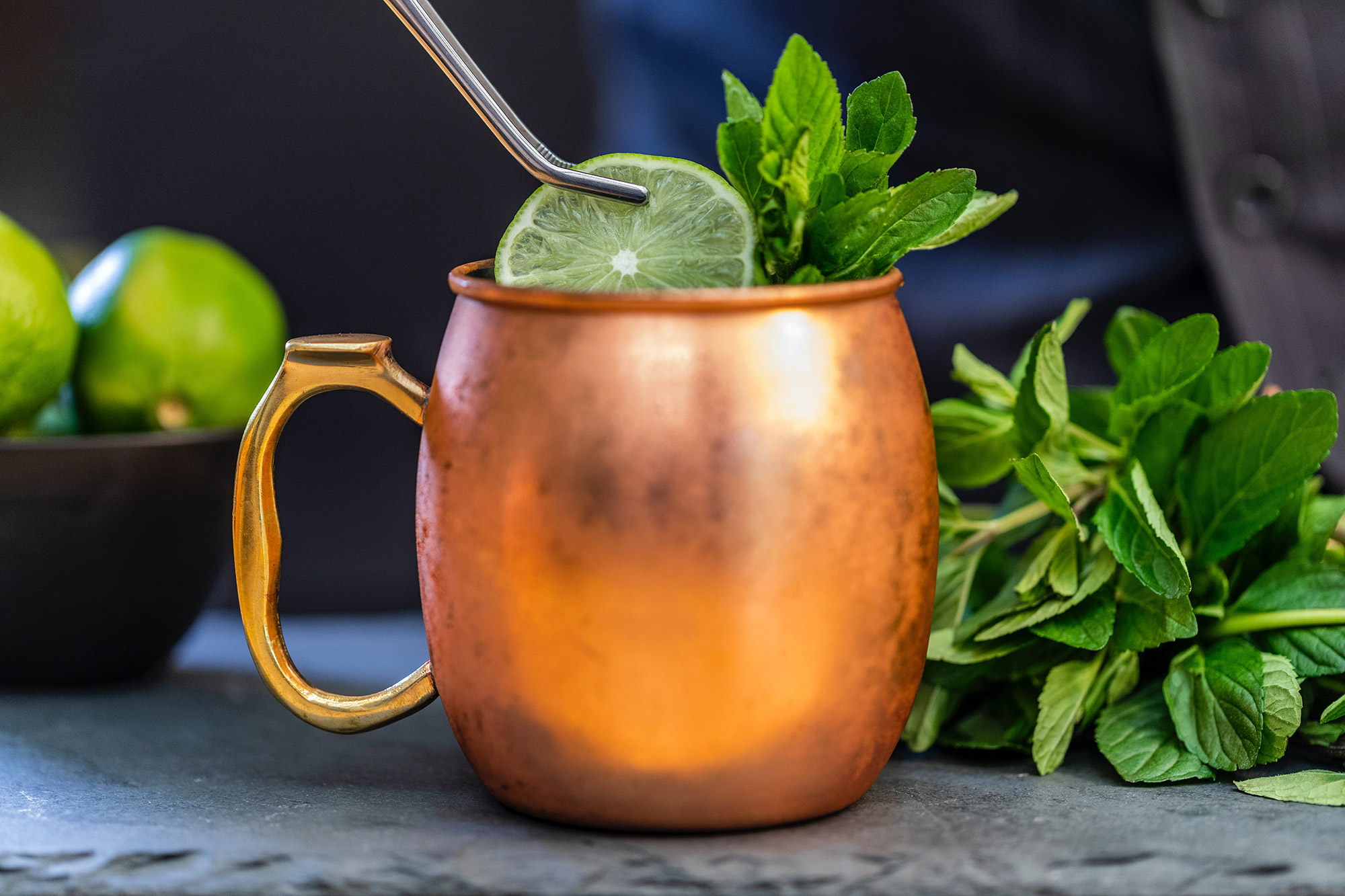How Does THC Affect Sleep – Best Strains for Insomnia

Using Cannabis When Counting Sheep No Longer Works
According to the American Sleep Association, 50-70 million US adults suffer from a sleep disorder. The CDC reports that adults who receive less than 7 hours of sleep a night are more likely to experience obesity and be less physically active, as well as other concerning health risk factors. It is also important to recognize that insomnia is not a symptom, but a sleep disorder. This disorder is one that can manifest seemingly sporadically and more notably, it can be amplified by other factors in a person’s life, like anxiety, stress, environmental changes, etc.
As nationwide social acceptance of cannabis continues to grow, it should come as no surprise that many consumers report using cannabis as a sleep aid. The Sleep Foundation found that roughly 70% of young recreational cannabis consumers describe cannabis as a tool to aid in sleep. The Sleep Foundation also found that, of individuals who have used cannabis for over ten years, around 50% describe increasing the quality of their sleep as their rationale for cannabis consumption. Even more astounding, when medical cannabis patients were surveyed, almost 85% reported improved sleep due to cannabis [4].
There’s More to the Story Than Sativa and Indica
If you’re a cannabis consumer, by now you’ve probably ventured into a legal licensed dispensary and found yourself being asked by a budtender if you’re looking for a sativa or indica — or perhaps they’ve taken it a step further and inquired if there is a certain strain that you’re looking for. Unfortunately, and to no fault of your own, this approach isn’t the best method if you’re searching for a cannabis product to potentially help with specific conditions, like sleep issues.
Strain names are often used to identify ideals of specific cannabis strains or varieties, but these colloquial names are not much more than clever marketing. Ultimately, strain names are an imaginative way for dispensaries and growers to label different genetic varieties in the marketplace.
Understanding Why Strain Names Are Essentially Marketing
It is likely that, at some point during the evolution of the commercial cannabis industry, there existed true sativa and indica variations of the plant. However, due to the scale at which breeding practices and commercial cultivation have proliferated, true sativa and indica designations have, in essence, been bred out. This is an example of what is referred to as genetic drift.
Genetic drift can occur while a cannabis plant is still being grown. When a plant reaches sexual maturity, it will begin pollinating, which in the world of cannabis, can be a problem for growers dealing with multiple varieties at once. For example, if a farmer has an acre of cannabis variety A and an acre of cannabis variety B growing nearby, these two varieties can cross-pollinate, resulting in shared genetics or genetic drift. This cross-pollination can change the genetic makeup of a cannabis plant, thus changing the way in which you are affected.
Among other reasons why setting experience expectations on a product’s strain isn’t reliable is genetic degradation. Given that the majority of large-scale cultivation facilities utilize clones — a propagated trimming that is taken from another cannabis plant called the mother — for their grow operations, the chances of cross-pollination and genetic drift are mitigated. However, plant genetics aren’t capable of replicating perfectly each generation. As a mother plant degrades with age, so do the accompanying genetics.
Additionally, the wide variability of growing conditions like changes in soil conditions, weather, and exposure to light can all play a role in the cannabinoid and terpene composition of a plant. As you can see, cannabis plants are similar to fingerprints, the chances of two being identical are slim to none. Therefore, shopping based solely on a strain name is not going to result in a consistent experience.
So, How Should I Shop for Cannabis?
Although strain names are riddled with pop-culture references and imaginative allusions to how a specific product may affect you, using that nomenclature to select your cannabis will likely leave you wondering why you might experience different effects each time you purchase what you believe to be the same product. If you’re searching for a consistent, repeatable experience from cannabis, you will be better served purchasing your products based on cannabinoid and terpene composition. These are the two main components that affect how your cannabis products make you feel. Cannabinoid composition — and in some cases, terpene composition — can be found on a product’s certificate of analysis (COA), which your budtender should be able to supply.
Can THC Help Alleviate Sleep Issues Like Insomnia?
Although we can’t definitively say for sure, current research shows promise for potential benefits that THC — and other — cannabinoids may have for those who experience sleep issues. Studies like the one published in the Journal of Clinical Psychopharmacology, suggests that THC may reduce sleep latency (the amount of time it takes a person to fall asleep). That said, there are still variables that researchers are trying to better understand around the subject of THC and sleep.
Before you begin incorporating THC into your nightly routine, it is important to consider all aspects. For example, some studies report that although THC may help you get to sleep, in higher doses, it may impair deeper stages of sleep like REM cycles. Additionally, many cannabis users report — anecdotally — the effect which many refer to as a “weed hangover” when they overindulge before bed. While these “weed hangovers” tend to be much more tolerable than alcohol hangovers, they can still leave a user feeling groggy and as if they are in a brain fog for a few hours upon waking.
Terpenes and Insomnia
As we mentioned, not only do cannabinoids maintain the potential to alleviate sleep issues like insomnia, but so do terpenes. Terpenes or terps are a constituent of not only the cannabis plant, but they’re produced by nearly all plants. These compounds are largely responsible for a plant’s aroma, hence why various strains of cannabis smell different. This is because each cannabis variety has a unique terpene profile.
Terpenes have been used in traditional medicines for thousands of years and modern research suggests that, while more definitive information is needed, terpenes may very likely maintain potential health benefits, including alleviating symptoms of some sleep disorders. There is evidence suggesting that terpenes like myrcene, linalool, and terpinolene may produce sedative effects that a user with sleep concerns might have.
Best Strains for Insomnia
Even though the use of strain names, as we’ve discussed, are not the most accurate way to choose a product, they can provide a starting point. More importantly in your search for a cannabis product that delivers your desired effects will be the conversation that you have with your dispensary budtender. Explaining the cannabinoid and terpene content that you want to try will get you much closer to discovering what works best for you than simply relying on a strain name. Here are a few that you may want to ask for:
- White Widow – This is a widely popular variety that is known for its high myrcene content. One study found that when mice were given myrcene, they “presented sedative as well as motor relaxant effects.”[8]
- Amnesia Haze – The same study that explored myrcene also examined the terpene myrcene for its potential sleep-inducing effects. Researchers reported an increase in sleeping time of mice that were exposed to myrcene compared to those who were not. Amnesia Haze typically boasts a high myrcene content, which makes it an option for those searching for this terp.
- OG Kush – This well-known variety is described by the majority of users as one that promotes relaxation. Much like White Widow, OG Kush is myrcene dominant which may be what lends to its potentially sedative effects.
While going into a dispensary armed with an idea of your expectations or at least an idea of what you want to try is a solid first step, when it comes to cannabis flower and some extracts, you can never be certain about what you’re getting in terms of cannabinoids and terpenes. Tools like batch specific COAs can certainly shed some light on a product, it remains difficult, at least when dealing with cannabis flower and some extracts, to have a full picture of the composition.
A Less Variable Approach
Like most cannabis users, when you find a product that really delivers the effects that you are searching for, you naturally want to be able to replicate the experience. As discussed, most cannabis products, while capable of potentially delivering your desired effects, leave you unable to repeat or even predict how you may react the next time due to the inconsistent nature of the cannabinoid and terpene composition. As the industry matures, there are some new solutions that not only take the guesswork out of knowing exactly what you’ve got in a product, but are able to deliver consistent, repeatable, and predictable results from batch to batch.
 Koan Cordials grant canna-consumers with the capability of using precision dosed cannabis. Products like these convenient cordials are available for delivery right to your front door for California residents. Koan provides users with various blends of not only cannabinoids, but terpenes as well. Each cordial is crafted to deliver a vibe tailored to your desired setting. For example, if you’re trying to channel your inner creative side and stimulate your senses, you may opt for the Koan Create Cordial and if you’re seeking a full-body experience while reconnecting with nature on a hike, you’ll likely be adding the Koan Wonder Cordial to your shopping cart.
Koan Cordials grant canna-consumers with the capability of using precision dosed cannabis. Products like these convenient cordials are available for delivery right to your front door for California residents. Koan provides users with various blends of not only cannabinoids, but terpenes as well. Each cordial is crafted to deliver a vibe tailored to your desired setting. For example, if you’re trying to channel your inner creative side and stimulate your senses, you may opt for the Koan Create Cordial and if you’re seeking a full-body experience while reconnecting with nature on a hike, you’ll likely be adding the Koan Wonder Cordial to your shopping cart.
When it comes to insomnia or other sleep issues, it is worth discussing Koan’s Serenity Bundle, which is a three-pack offering of Koan Cordials tailored to a functional experience without heavy intoxication. This bundle contains a Calm Cordial, Delight Cordial, and Balance Cordial. This is an excellent option for those who are still searching for the product blend that delivers optimal results and a repeatable experience.
This article is for informational purposes only and not to be used as medical advice. Please speak with a medical professional before making any changes to your diet, medications, or daily routine. These statements have not been evaluated by the FDA. These products are not intended to diagnose, treat, cure, or prevent any disease.
References:
- https://www.sleepassociation.org/about-sleep/sleep-statistics/
- https://www.cdc.gov/sleep/data_statistics.html
- https://www.sleepfoundation.org/natural-sleep-aids/marijuana-for-sleep
- https://link.springer.com/article/10.1007/s40429-014-0016-9
- https://www.healthupp.com/why-you-should-buy-your-thc-and-cbd-products-at-a-licensed-dispensary/
- https://pubmed.ncbi.nlm.nih.gov/15118485/
- https://koan.life/post/best-terpenes-for-anxiety/
- https://pubmed.ncbi.nlm.nih.gov/12587690/
- https://pubmed.ncbi.nlm.nih.gov/23339024/
- https://koan.life/
- https://shop.koan.life/



